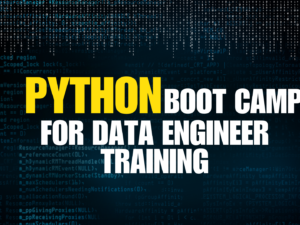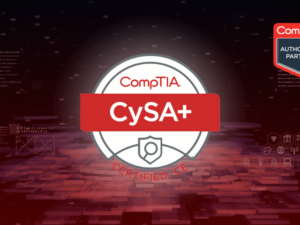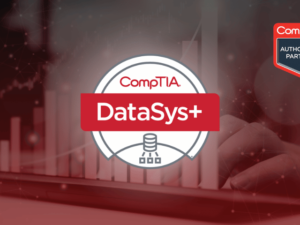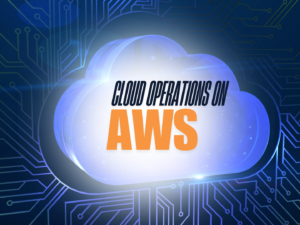AWS MWAA & MICROSERVICES
- Description
- Reviews
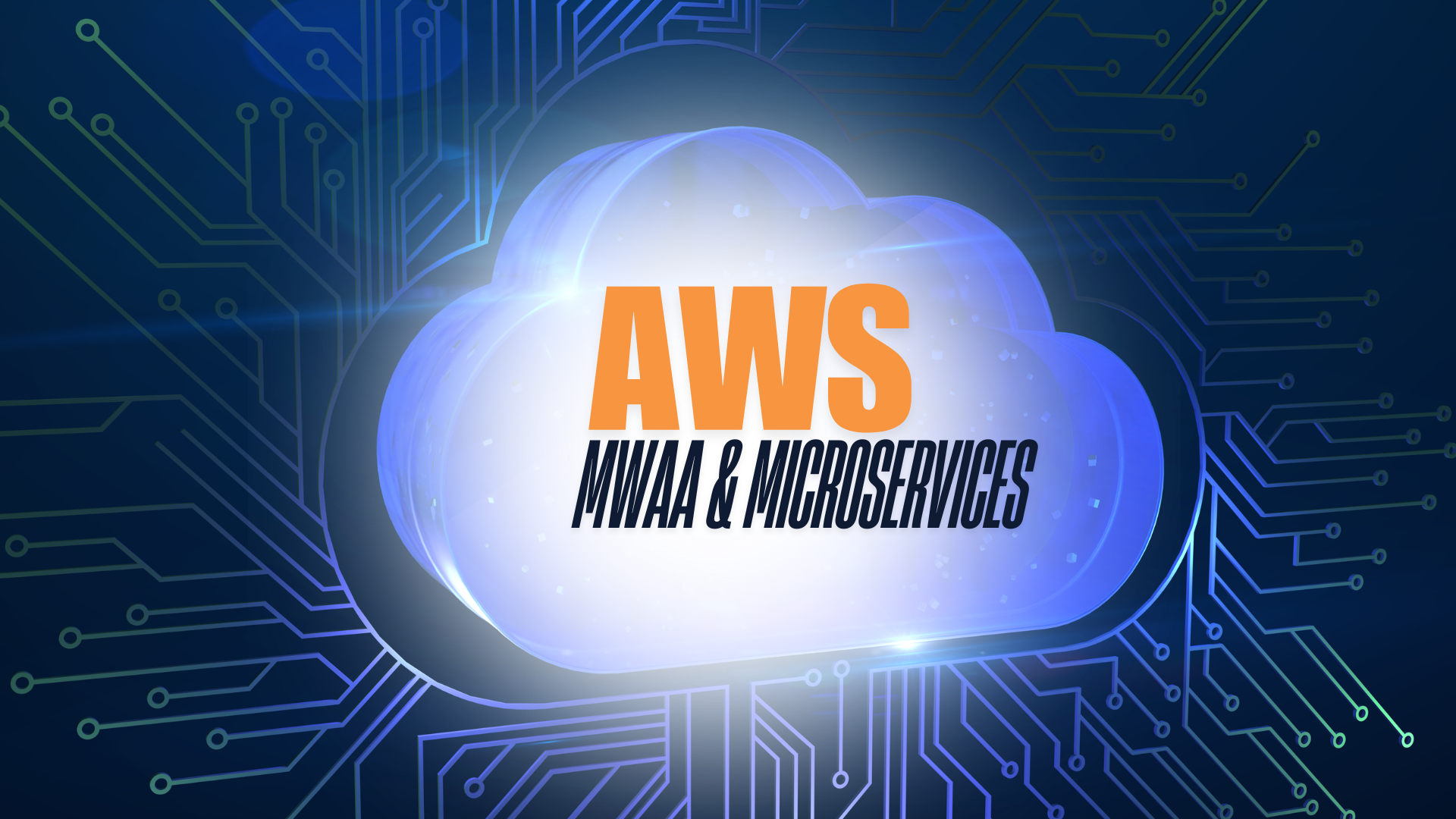
Course Overview
Introduction
The AWS MWAA & Microservices Certification Training provides in-depth knowledge of AWS Managed Workflows for Apache Airflow (MWAA) and microservices architecture. This course equips IT professionals and developers with the skills to design, implement, and manage cloud-native microservices and workflow automation using AWS services.
Business Relevance
With the rapid adoption of cloud computing, businesses require scalable, efficient, and automated workflows. This course enables organizations to streamline operations, enhance security, and optimize IT efficiency by leveraging AWS MWAA and microservices.
Target Area
This training focuses on cloud automation, microservices deployment, and cloud-native application development, making it essential for organizations transitioning to modern cloud architectures.
What You’ll Learn & Who Should Enroll
Key Topics Covered
- Introduction to AWS MWAA: Understanding AWS Managed Workflows for Apache Airflow and its integration with cloud environments.
- Microservices Architecture: Learn the fundamentals of microservices, containerization, and service orchestration.
- AWS Services for Microservices: Explore AWS Lambda, ECS, EKS, API Gateway, and other key AWS components.
- Workflow Automation & Optimization: Implement workflow automation using Apache Airflow within AWS MWAA.
- Security & Compliance in Microservices: Best practices for securing microservices and workflow applications.
Ideal Participants
This course is designed for:
- Cloud Architects & DevOps Engineers: Design and optimize cloud-based microservices and workflows.
- Software Developers & Engineers: Develop scalable microservices applications using AWS.
- IT Managers & System Administrators: Implement and manage cloud-native applications efficiently.
- Security & Compliance Professionals: Ensure secure implementation of cloud-based workflows and applications.
Business Applications & Next Steps
Key Business Impact
- Enhanced Security & Compliance: Implement best practices for securing microservices and automated workflows.
- Improved Cloud Governance: Establish robust strategies for managing cloud-native architectures.
- Operational Efficiency: Automate business processes and improve IT service delivery.
Next-Level Training
To further build expertise, consider:
- AWS Certified Solutions Architect – Associate Exam: Deepen knowledge in AWS architecture and best practices.
- Developing on AWS: Learn advanced AWS development techniques for building cloud-native applications.
- Developing Serverless Solutions on AWS: Explore serverless architectures for microservices and workflow automation.
Why Choose Acumen IT Training?
- Enterprise-Focused Curriculum: Tailored to the challenges of cloud-native business environments.
- Qualified-Led Training: Learn from seasoned professionals with extensive AWS and microservices expertise.
- Business-Driven Learning: Gain hands-on experience applicable to real-world enterprise applications.
- Flexible Training Options: Choose from Online, Hybrid Training, Instructor-Led On-Site (at your location or ours), and Corporate Group Sessions.
For the full course outline, schedules, and private corporate training inquiries, contact us at Acumen IT Training.
Course Outline
TRAINING INCLUSIONS
-
Comprehensive training materials and reference guides.
-
Hands-on lab exercises with real-world AWS MWAA and microservices scenarios.
-
AWS MWAA & Microservices Certificate of Training Completion.
-
Access to AWS services during training.
-
30 Days Post-Training Support.
COURSE OUTLINE
- Introduction to AWS MWAA
- Getting Started with AWS MWAA
- Apache Airflow Fundamentals
- Integrating AWS Services with MWAA
- Scaling and Monitoring MWAA Environments
- Securing MWAA Environments
- Advanced Airflow Features
- Microservices Architecture Overview
- Designing Microservices
- Implementing Microservices on AWS
- Service Mesh and Microservices Communication
- Microservices Deployment and orchestration
- Monitoring and Observability for Microservices
- Security Best Practices for Microservices
- Integration with AWS MWAA
For full course outline, please contact us at Acumen IT Training Inc.
FAQs
- What is AWS MWAA & Microservices training about?
This course covers AWS Managed Workflows for Apache Airflow (MWAA) and microservices architecture, helping participants build scalable, event-driven applications on AWS. - Who should attend this training?
Software developers, cloud architects, DevOps engineers, and IT professionals looking to implement workflow automation and microservices in AWS. - Do I need prior experience in AWS or microservices?
Basic knowledge of AWS services and containerized applications is recommended but not required. - What AWS services will be covered?
The course includes AWS MWAA, AWS Lambda, Amazon ECS, Amazon EKS, API Gateway, and AWS Step Functions. - How long is the training?
The course runs for 2 to 3 days, including hands-on exercises and real-world case studies. - Is this training available online?
Yes, we offer both online and in-person training options. - Will I receive a certificate after completing the course?
Yes, participants will receive an AWS MWAA & Microservices Certificate of Training Completion. - How can this training help my career?
Microservices and workflow automation are critical in modern cloud architectures, making these skills highly valuable in software development and DevOps roles. - What kind of projects will I work on?
You’ll develop automated workflows using AWS MWAA and deploy microservices using AWS services. - How can I enroll in this course?
You can contact us for schedules, private class bookings, and enrollment details.
Real-World Applications of AWS MWAA & Microservices
Case Study 1: Automating Data Pipelines with AWS MWAA
Challenge: A fintech company needed an automated data pipeline to process real-time transactions.
Solution: Implemented AWS MWAA to schedule and manage ETL workflows.
Result:
✅ Reduced manual intervention in data processing
✅ Improved efficiency with real-time transaction updates
✅ Enhanced data accuracy for financial reporting
Case Study 2: Enhancing Application Scalability with Microservices
Challenge: An e-commerce platform struggled with high traffic loads during peak sales.
Solution: Migrated from a monolithic architecture to a microservices-based system using AWS Lambda, Amazon ECS, and API Gateway.
Result:
✅ 99.9% uptime, even during peak sales events
✅ Faster feature deployment with independent services
✅ Improved fault tolerance and system reliability
Use Case 1: Workflow Automation for Content Processing
A media company automates content processing workflows using AWS MWAA.
✅ Streamlines video encoding and metadata generation
✅ Reduces operational overhead with automated scheduling
✅ Ensures timely content delivery across platforms
Use Case 2: Microservices-Based Customer Support System
A SaaS company modernizes its customer support system using microservices.
✅ Enhances response times with scalable APIs
✅ Enables real-time tracking of support tickets
✅ Reduces downtime with independent service scaling
Why These Case Studies Matter for You
Understanding how AWS MWAA and microservices work in real-world applications will help you design scalable, automated solutions for modern cloud environments.
🔗 Enroll today and take the next step in your cloud journey with AWS MWAA and microservices expertise!
Testimonials: What Professionals Say About Our AWS MWAA & Microservices Training
⭐ ⭐ ⭐ ⭐ ⭐ “Great hands-on experience!”
“I learned how to automate workflows using AWS MWAA, which significantly improved my efficiency at work.”
— Carlos B., Cloud Engineer
⭐ ⭐ ⭐ ⭐ ⭐ “Practical and insightful!”
“The microservices concepts were explained clearly, and the labs made it easy to apply them in real projects.”
— Jayson L., Software Developer
⭐ ⭐ ⭐ ⭐ ⭐ “Highly recommended for cloud professionals!”
“This training gave me the confidence to implement AWS MWAA in our cloud infrastructure.”
— Arnel P., DevOps Specialist
Request a Quote
Popular Courses
Archive
Working hours
| Monday | 9:00 am - 6.00 pm |
| Tuesday | 9:00 am - 6.00 pm |
| Wednesday | 9:00 am - 6.00 pm |
| Thursday | 9:00 am - 6.00 pm |
| Friday | 9:00 am - 6.00 pm |
| Saturday | Closed |
| Sunday | Closed |


